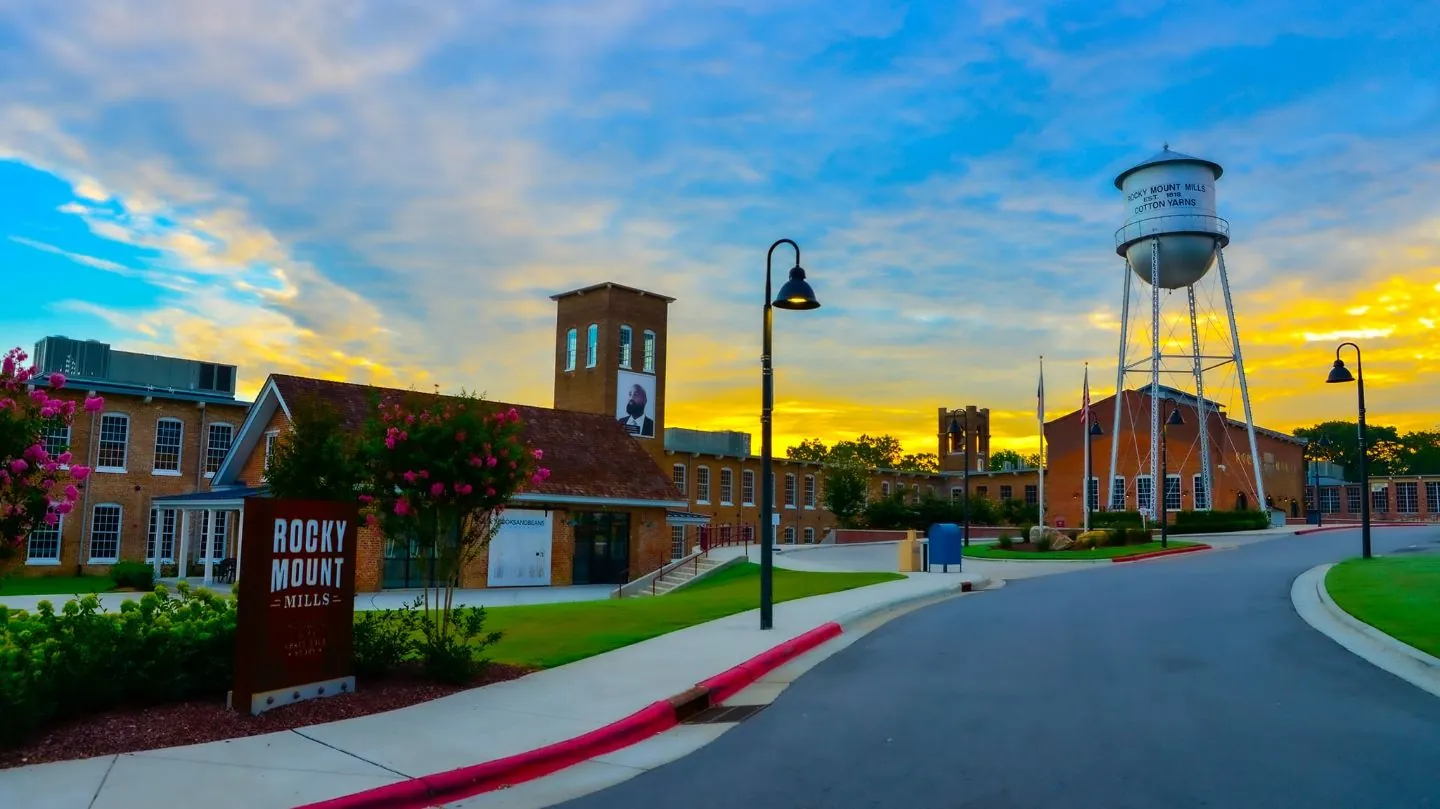North Carolina, known for its scenic mountains, sprawling beaches, and vibrant cities, holds a hidden undercurrent of struggle. Within this tapestry of sunshine and charm lies Rocky Mount, a city burdened by a title no community desires: the most depressed in the state. This label raises poignant questions: why Rocky Mount? What factors contribute to this stark reality? And, most importantly, how can we move beyond mere identification to a path of understanding and support?
Source – Newsbreak, Census Bureau
A Statistical Snapshot:
Statistics cast a harsh light on Rocky Mount’s predicament. With a population of 54,341, it stands as the 20th most populous city in North Carolina, yet its struggles seem disproportionate to its size. Nearly 19% of its residents grapple with poverty, living below the national average income of $70,786. The median household income of $46,396 paints a picture of economic hardships, leaving many families burdened by financial instability.
The Grip of Crime:
Further compounding the challenge is the omnipresent fear of crime. Violent crime rates in Rocky Mount soar at 45.1, almost double the national average of 22.7. The shadow of property crime looms even larger, with a rate of 64 compared to the US average of 35.4. This constant threat to personal safety and security erodes trust within the community, breeding anxiety and contributing to a sense of helplessness.
Beyond the Numbers: Unveiling the Human Story:
Statistics, however, are cold equations devoid of the human narratives that breathe life into the issue. In Rocky Mount, depression manifests in countless ways: the single mother struggling to feed her children, the veteran haunted by memories, the young man teetering on the edge of despair due to lack of opportunity. Each story is a testament to the complex tapestry of factors that weave the fabric of depression: economic disenfranchisement, limited access to mental health resources, the lack of a strong social safety net, and the crushing weight of isolation.
The Unexpected Truth: A Tale of Two Cities:
But Rocky Mount is not merely a canvas of bleak statistics. Within its struggling heart lie pockets of resilience. Local businesses strive to provide jobs and economic opportunities. Community centers offer safe havens for children and families. Grassroots initiatives tackle food insecurity and mental health stigma. These embers of hope, though flickering, demonstrate the indomitable spirit of the community.
Moving Forward: A Roadmap to Recovery:
Addressing the issue of depression in Rocky Mount requires a multi-pronged approach. Economic revitalization programs, coupled with job training and education initiatives, can empower residents to climb out of poverty’s grip. Increased access to affordable mental health resources, including culturally competent therapy and support groups, can provide crucial lifelines for those struggling with depression. Fostering a strong community network, through neighborhood watch programs and mentorship initiatives, can combat social isolation and build a sense of belonging.
FAQ’s:
Why is Rocky Mount the most depressed city in North Carolina?
A complex interplay of factors contributes: high poverty rates, limited access to mental health resources, pervasive feelings of insecurity due to crime, and insufficient social support structures.
Is Rocky Mount a dangerous city?
While crime rates are higher than the national average, focusing solely on statistics paints an incomplete picture. Many neighborhoods are safe, and there are ongoing community efforts to address crime.
What resources are available for people struggling with depression in Rocky Mount?
UNC Health Nash offers mental health services, including a crisis hotline and inpatient care. Local non-profits and faith-based organizations also provide support groups and counseling services.
What can be done to help Rocky Mount overcome its challenges?
Investing in economic development, expanding access to mental healthcare, fostering community cohesion through social programs, and tackling the root causes of poverty are all crucial steps.
Is there hope for Rocky Mount’s future?
Absolutely! The city’s resilient spirit, coupled with ongoing community initiatives and potential external support, can pave the way for a brighter future.
Conclusion:
Rocky Mount’s story is not just about one city in North Carolina. It is a microcosm of challenges faced by countless communities across the nation. By delving beyond the headlines and understanding the intricate web of factors at play, we can move towards proactive solutions. By investing in the human capital of Rocky Mount, fostering economic and social well-being, and building a comprehensive support network, we can rewrite the narrative, replacing despair with hope. The journey to reclaim Rocky Mount from the clutches of depression may be long and arduous, but it is a journey worth taking. For in the process of lifting one city, we pave the way for a brighter future for all.
Disclaimer:
The information presented in this article is based on publicly available data and research materials. While efforts have been made to ensure accuracy, we recommend consulting with relevant local stakeholders and sources for the most up-to-date information. Furthermore, this article does not substitute for professional medical or mental health advice. If you or someone you know is struggling with depression, please reach out to a qualified mental health professional for help.
Additionally, the depiction of Rocky Mount in this article aims to provide an objective and nuanced perspective on the challenges the city faces. It is not intended to stigmatize or generalize about the lives of its residents. We acknowledge and applaud the resilience and strength of the Rocky Mount community in the face of adversity.
This disclaimer aims to ensure ethical and responsible reporting while respecting the complexity of the situation and the dignity of everyone involved.

